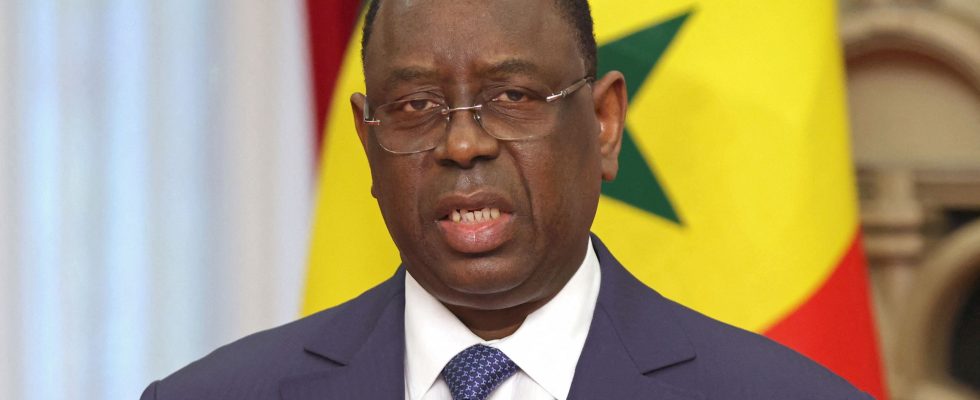The year 2024 was full of promise for Senegal. It is supposed to mark the start of oil and especially gas production, thanks to the deposits discovered around ten years ago off the Senegalese and Mauritanian coasts. Enough to double annual GDP growth, beyond 8%, with the added bonus of expecting an export boom and an influx of public revenue. All is not lost, these operations should start in a few months. But after the unpleasant surprise of the postponement to December 15 of the presidential election initially scheduled for February 25, a veil of uncertainty has blurred the prospects of the country, presided over since 2012 by Macky Sall.
Mali, Guinea, Burkina Faso, Niger, Gabon… In this French-speaking Africa shaken by serial coups, will Senegal in turn falter, at the risk of compromising its economic growth? Observers try to reassure themselves. “Certainly, this is not a good signal, but the dynamic has been going on for long enough that we can hope that it does not get out of hand,” says Bertrand Badré, former director general of the World Bank. “It remains to be seen how the gas companies will react [NDLR : le britannique BP, l’américain Kosmos Energy, l’australien Woodside Energy], points out Dominique Fruchter, economist at Coface. However, these projects are offshore, and therefore less likely to be disrupted by unrest on the continent.”
The outgoing president’s record is praised. For its long-term vision, its diplomatic weight. Under Macky Sall, the country’s growth has accelerated, despite the Covid crisis and the war in Ukraine, the disruption of supply chains and inflation – peaking at 9.7% in 2022. Even before If the hoped-for windfall from hydrocarbons falls, Senegal can rely on a diversified economy, 28 products accounting for 90% of exports – far from States dependent on a handful of raw materials. Manufacturing sector, commerce-catering and agriculture-fishing hold a good place in national activity. Also to Macky Sall’s credit are these major infrastructure projects as part of the Senegal Emerging Plan, from the TER linking Dakar to Diamniadio, the city created to decongest the capital, to water treatment plants via the construction of a Senegal-Gambia bridge. Gas projects have boosted foreign investment, increasing eightfold between 2011 and 2022.
This small West African state has had the merit, until now, of political stability. However, if its economic take-off is well underway, social indicators have not followed, a breeding ground for popular exasperation. Among the 17 million inhabitants, many remained on the sidelines of this boom, particularly in rural regions. “90% of employment is informal,” notes economist Arthur Minsat, head of the Africa, Europe and Middle East unit at the OECD development center. So many Senegalese who are therefore not covered by social benefits, do not have access to health services, retirement… Despite growth, “the number of jobs created has proven insufficient”, adds- he. “Unemployment is still around 20% of the active population, taking into account the informal sphere, confirms Dominique Fruchter. Among 15-24 year olds, it even exceeds 30%.” Factors which may have contributed to movements of discontent, recognizes this Africa specialist, especially since a large part of the electorate is young, 75% of the population being under 35 years old, “so in first line when it comes to employment.
It is not certain that the miracle of local hydrocarbons will meet this expectation, unless these resources are transformed on site, “which requires training and public investment”, warns Arthur Minsat. In the meantime, the ranks of the poorest are growing, strangled by the soaring prices of food products, fertilizers, seeds, fuel… “Senegal has always been a model in the region, even if its governance is not perfect “Institutions must pass this test of democracy,” said the OECD economist. A double or nothing.
.
